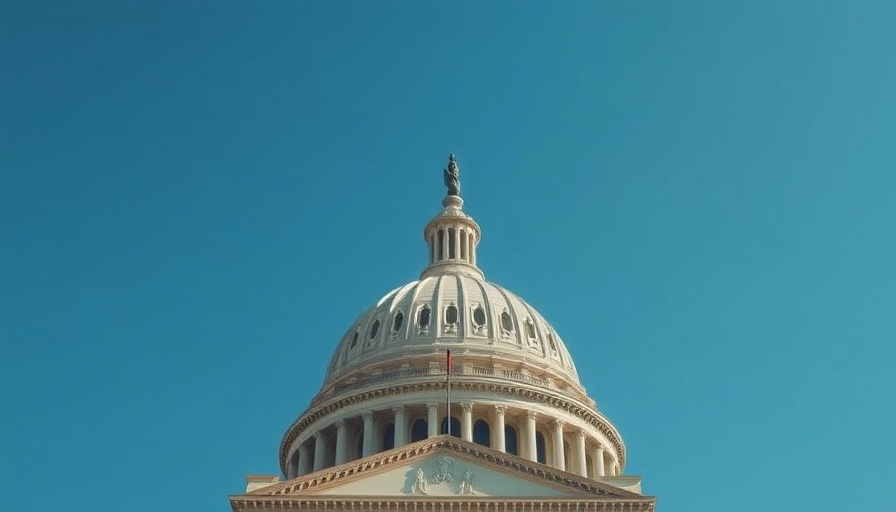
The Proposed AI Regulation Ban: What’s at Stake?
As the landscape of artificial intelligence continues to evolve at an unprecedented pace, a recent proposal to impose a decade-long ban on state-level AI regulation has sparked fierce debate among stakeholders. Critics claim this move primarily benefits large tech companies, as it prevents states from responding to the emerging challenges that come with AI development.
Understanding the Controversy
The proposal, tucked into a budget reconciliation bill by a Republican-led committee, would effectively enshrine a 10-year moratorium on state regulations regarding artificial intelligence. As stated in the bill, "no State or political subdivision thereof may enforce any law or regulation regulating artificial intelligence models, artificial intelligence systems, or automated decision systems during the 10-year period of this Act." This not only limits states like California from taking proactive measures but also challenges grassroots efforts to address AI-related issues such as discrimination in lending or workplace surveillance.
The Consequences of a Regulatory Blackout
Critics, including organizations like the Electronic Frontier Foundation (EFF), argue that under this ban, essential safeguards against the risks posed by AI technology could be sidelined for a decade. The EFF emphasizes that even if Congress remains inactive on AI legislation, states would be powerless to intervene. This regulatory vacuum presents a significant risk, considering the rapid evolution of technology and the potential for systemic harms.
Balancing Innovation with Accountability
Proponents of the ban argue that a unified federal approach to AI regulation is necessary to avoid a patchwork of conflicting state laws that could stifle innovation. However, this argument raises critical questions about accountability. Critics highlight the inherent risks of leaving unchecked monopolistic practices by major corporations, which often exploit regulatory blind spots for their advantage. This tension reflects a broader discussion in the tech industry about the balance between fostering innovation and ensuring ethical practices.
Voices Against the Ban: A Collective Concerns
The open letter signed by various state-level representatives, including prominent AI researcher Gary Marcus, reinforces the gravity of the situation. It warns of the ban's implications on public safety and highlights the inability of states to protect their residents from harmful AI systems. Moreover, it raises ethical concerns about the potential for discriminatory applications of technology, particularly in sensitive areas like credit lending and employment.
The Bigger Picture: The Need for Urgent Regulation
As technology advances rapidly, the need for timely and effective regulations becomes more crucial. This ban is seen by many as a knee-jerk reaction that may protect big tech at the expense of the public interest. Community leaders and advocacy groups stress the importance of having state-level go-betweens who can swiftly address societal needs as they arise. In their view, local bodies are often more in tune with the repercussions of technology in their communities compared to a slower-moving Congress.
Future Trends: Preparing for the Unknown
The issue of AI regulation is expected to remain a critical topic as technological developments reshape everyday life. Industry insiders speculate that as more AI systems are integrated into routine activities, calls for oversight will only intensify. This brings us to a pivotal question: how do we ensure safety without stifling innovation? Effective oversight hinges on a collaborative approach that involves stakeholders across sectors, including government regulators, tech developers, and civil society.
As this debate unfolds, it is vital for business professionals, especially those in technology and marketing, to stay informed. Being proactive about the future of AI governance and advocating for balanced regulations can lead to a more ethical landscape that prioritizes both progress and accountability.
 Add Row
Add Row  Add
Add 




 Add Row
Add Row  Add
Add 

Write A Comment